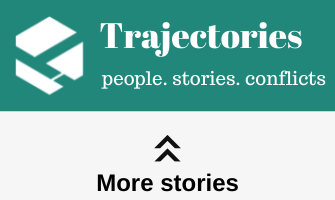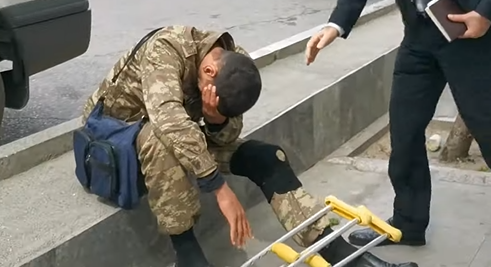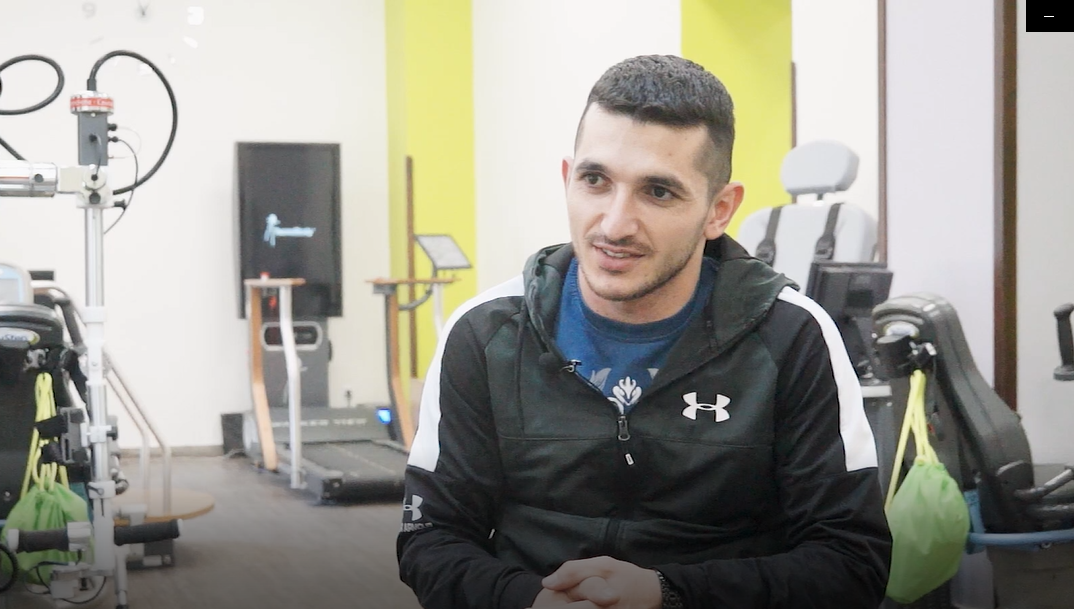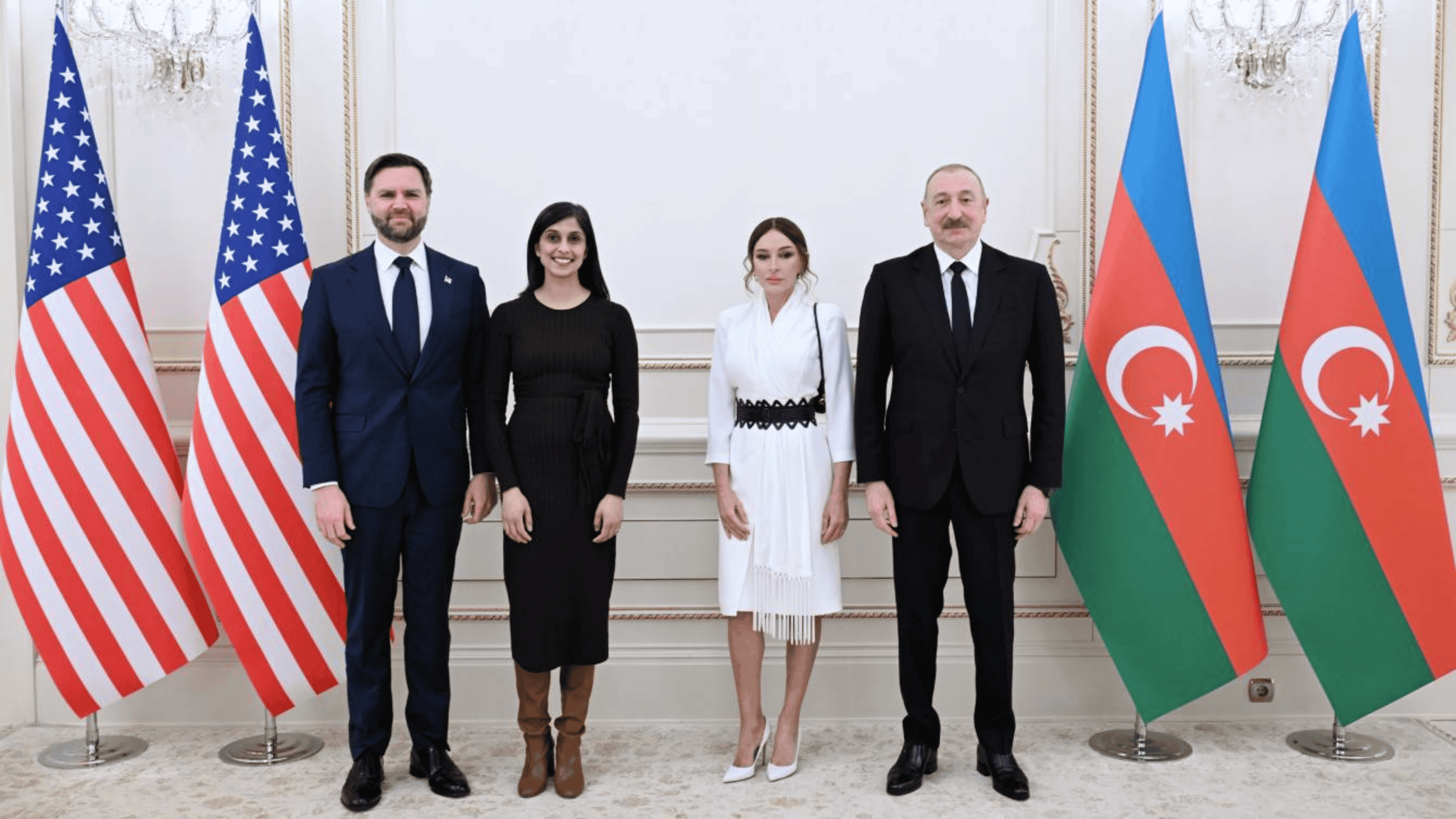“Heroes don’t hurt”: why war veterans don’t seek mental health help
Psychological assistance to the Karabakh war veterans
Based on my observations and other people’s stories, I came to the conclusion that most often participants in the war do not seek psychological help – they either do not want to, or cannot do it for one reason or another.
In this blog, I will try to understand why this trend exists.
I think the first reason is that the economic situation in Azerbaijan does not allow meeting all the needs of the participants in the war.
Therefore, veterans, their loved ones and the families of the victims postpone receiving psychological assistance until better times. First of all, they try to solve their medical and material problems, and they direct all their efforts toward this.
The second and, in my opinion, the most important reason is that people who fought in the war are often regarded by society as heroes. So both they, and even their loved ones, who have been passive participants in what is happening all this time, are simply ashamed to voice their psychological problems.
Heroization often imposes the obligation to be proud of it – both on the participants in the war and on their loved ones. That is, they cannot talk about their traumas, fears and pain.
After all, heroes do not sink in water, do not burn in fire, and easily resist any difficulties – this is the image militaristic propaganda seeks to inspire.
While listening to the speeches of the participants in the war, it is easy to see that, even having received serious injuries or having been captured, they talk about all this quite calmly, as if it is something that has long been overcome and does not pose any problem.
I remember one video in which a veteran who lost both legs spoke very calmly about it. And when the journalist who interviewed him burst into tears, he told her: “If you cry, I will ask you to leave. I don’t let anyone mourn me”.
During the war, a phrase that an Azerbaijani soldier told one Turkish journalist – “We are not afraid, we are excited” – became a symbol of heroism for Azerbaijani society.
All this glorification and symbolization makes the participants in the war constantly be “cheered up” and maintain a “fighting spirit” in themselves. But the reality is that after returning from the war, people tend to find it difficult to adapt to their old life.
During times of war, they can temporarily silence fear in order to survive. They do not have the time and opportunity to grieve for their friends who died before their eyes and process it.
But after returning from the frontline, they remember everything they’ve experienced, one episode after another. And everyone tries to cope with these memories in their own way, everyone defends themselves from them in their own way.
Sometimes this gives rise to post-traumatic stress, panic attacks.
Unfortunately, attempts to cope with such an experience are most often unsuccessful, and the suffering experienced can also affect their relationships with loved ones. Family members and others do not always understand what is happening. And usually they just try to get used to it and adapt to it, no matter how hard it is.
Therefore, the whole family perceives the receipt of psychological support as something humiliating, incompatible with the image of the hero, and refuses it. Similarly, women whose husbands, sons, or lovers went through the war often prefer not to talk tol a specialist about all this, because they perceive it as complaints and disrespect for their men.
Last year, at my session, the son of a veteran of the first Karabakh war said the following thing:
“Mom said for years that before my father was not so nervous, that these are the consequences of the war in which he participated in order to protect us. And it would probably pass soon. You can’t complain about it, don’t say anything to him, don’t hurt him“.
Many years ago, at one of the lectures, we asked the psychoanalyst Fariz Samedov if a person can help himself through PTSD.
“Whatever weight an athlete lifts, he is not able to lift himself, it is physically impossible”, he replied.
In the same way, no matter how strong and strong-willed a person is, no matter how heroic he is, it is quite natural that he also needs psychological support.
And therefore, in my opinion, the state is obliged to make efforts to ensure that society begins to perceive psychological assistance as a norm because this affects the lives of thousands of people, the security of the connections and relationships they create and the well-being of the whole society.
Trajectories is a media project that tells stories of people whose lives have been impacted by conflicts in the South Caucasus. We work with authors and editors from across the South Caucasus and do not support any one side in any conflict. The publications on this page are solely the responsibility of the authors. In the majority of cases, toponyms are those used in the author’s society. The project is implemented by GoGroup Media and International Alert and is funded by the European Union






















